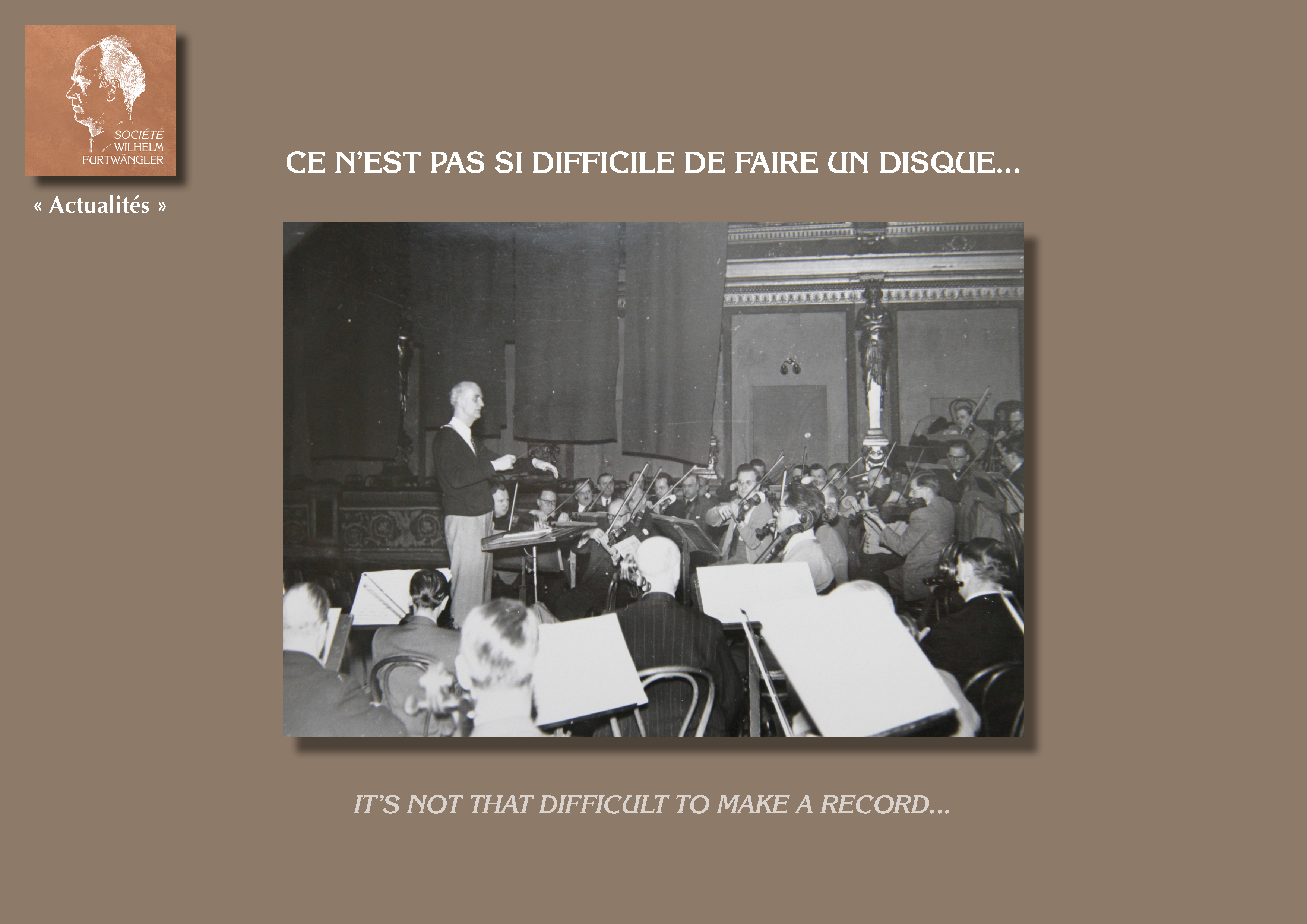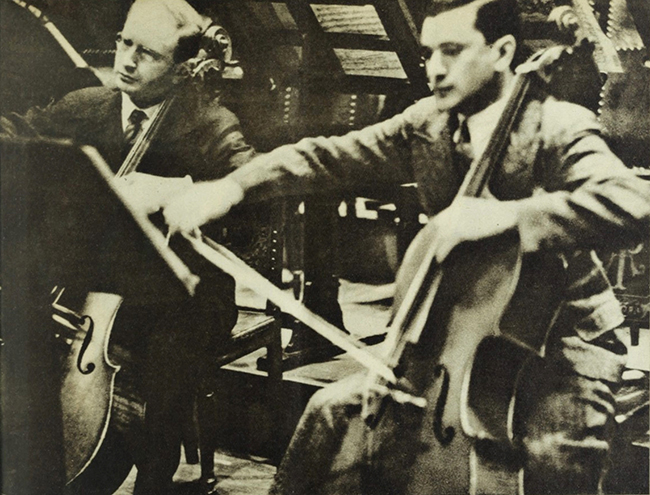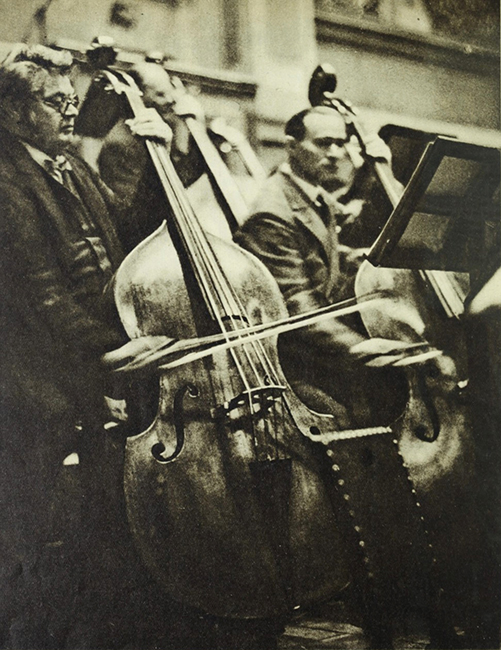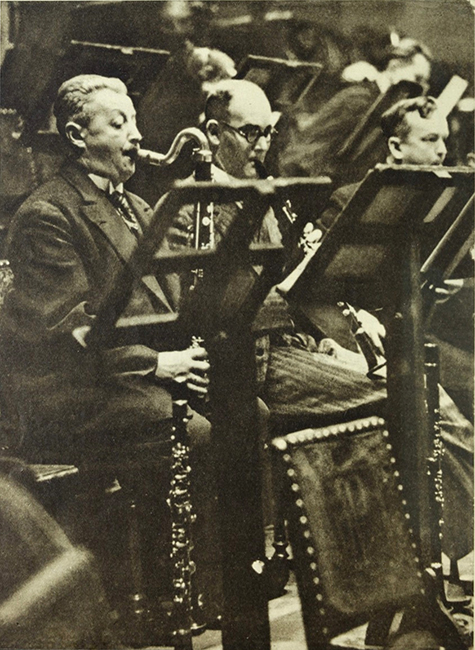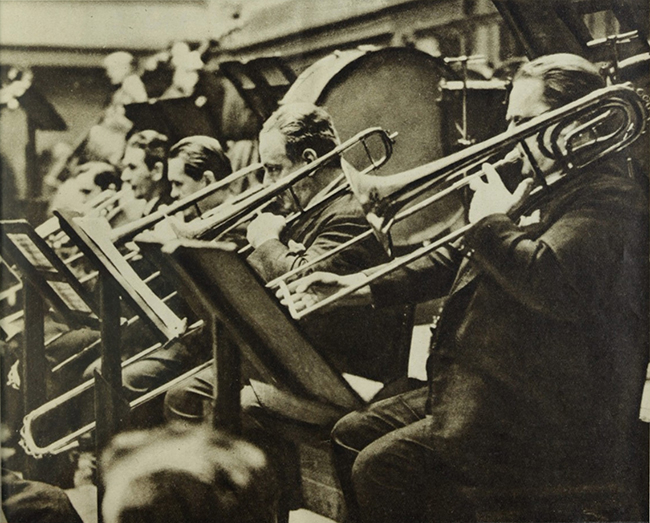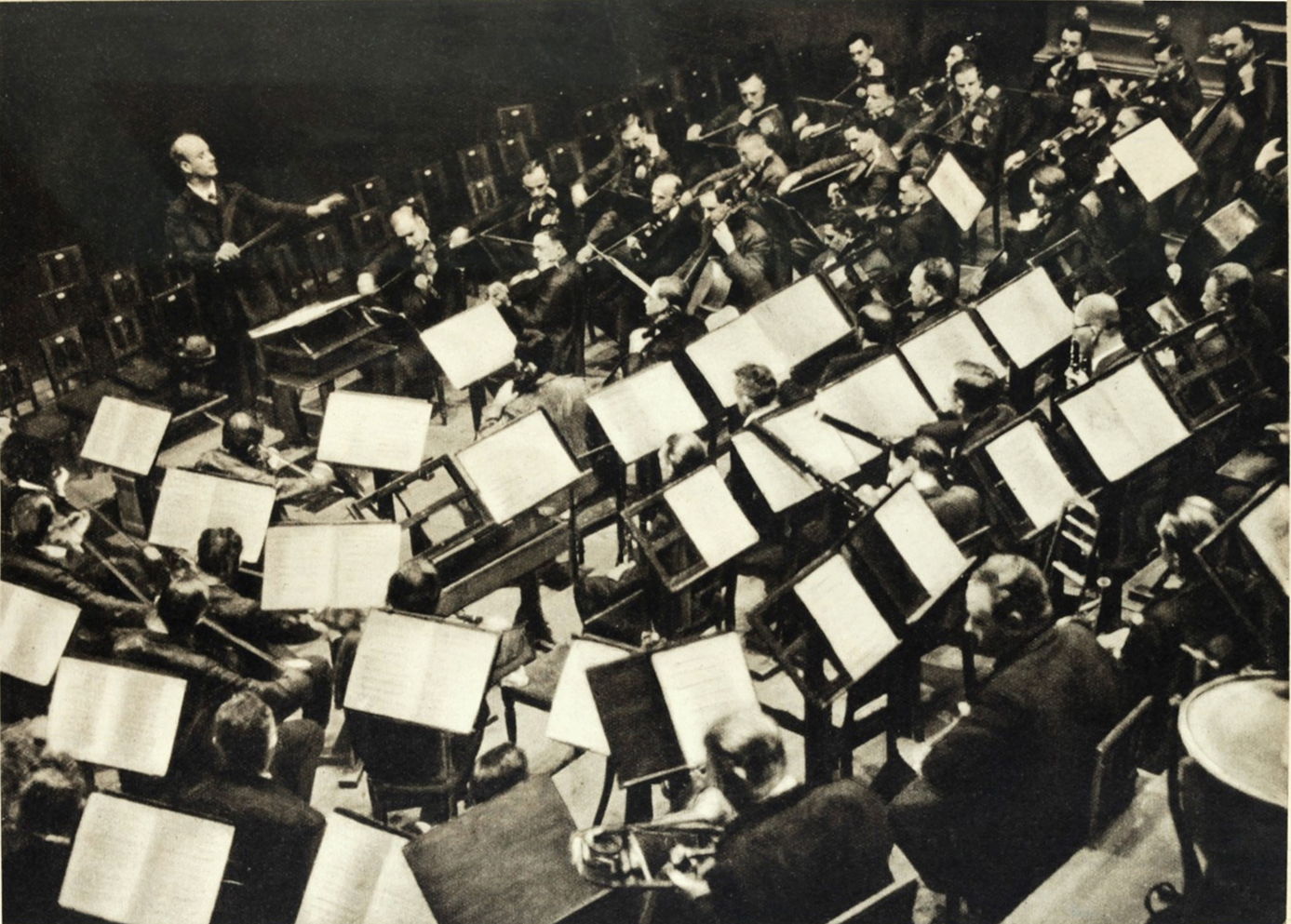News

It may be that your attentive webmasters are back on the job, but their heads are still basking in the sun somewhere... And so we shall content ourselves with returning to a classic of the summer: the festivals. Let’s go to Bayreuth, in 1936, to see Furtwängler at work (shirt and no tie!). Never did a conductor have so much to do there in one year: the Ring, Parsifal, Lohengrin....
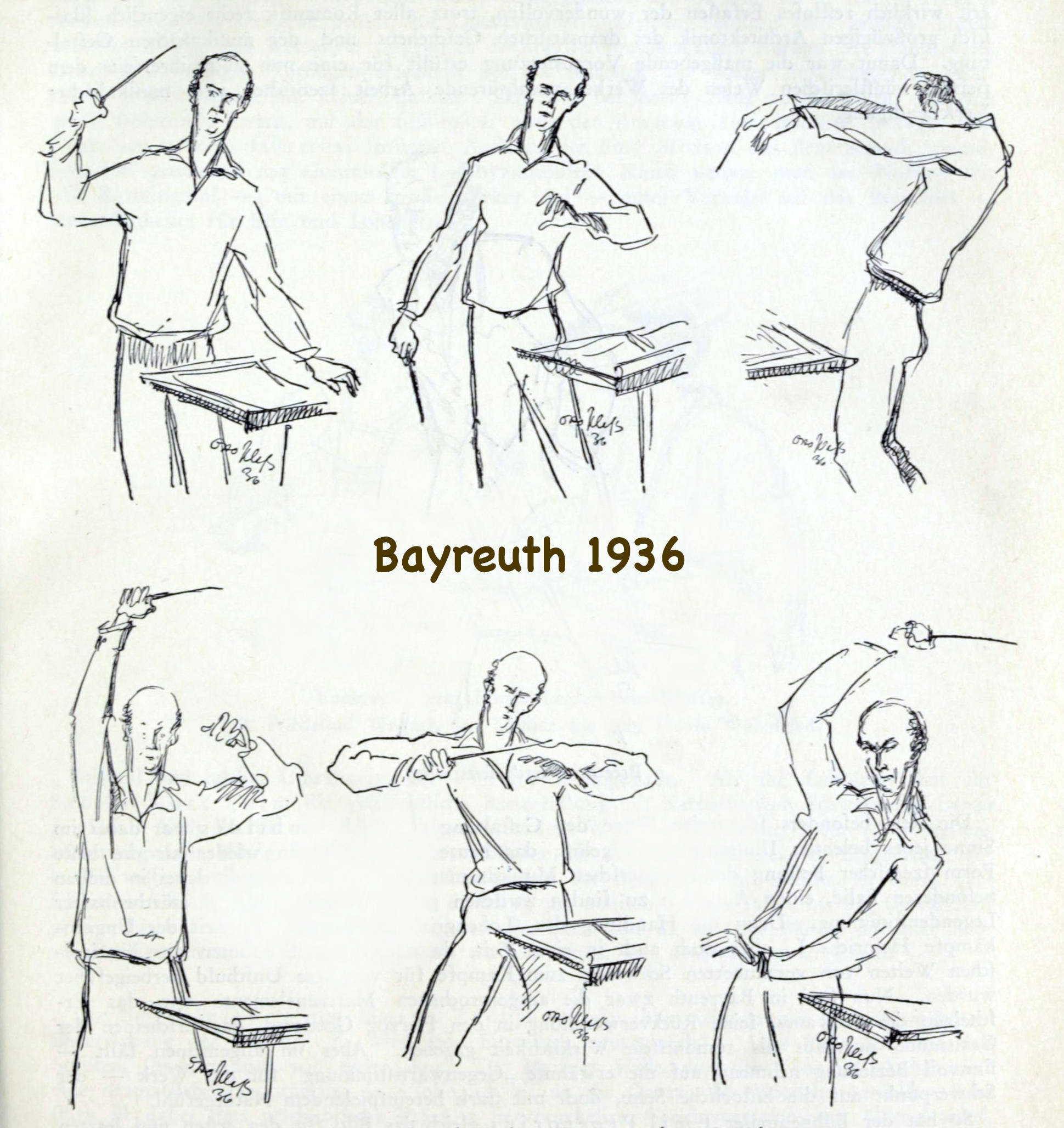
What is he rehearsing? Let’s say, he is rehearsing; it’s already more than enough for a 15 August.
The editors of this website are taking a short break, time off, a change of scenery... in short they are abandoning you, but give you a rendez-vous after 15 August for some new projects. Whether by the sea or in the mountains — like here, Furtwängler in Saint Moritz — have a great vacation!

What do the three composers in the Vienna Philharmonic’s programme of 18, 19 and 20 December 1948 have in common? They are all Viennese, and yet not truly Viennese. Joseph Marx was from Graz but was Viennese by adoption, as was the Hamburg-born Brahms, while Richard Strauss divided his time between Garmisch in Bavaria and Vienna.
But this programme raises another interesting detail. Furtwängler accompanied many soloists throughout his career — pianists, violinists, cellists — but rarely wind instruments. Here, however, we have an exception: an oboe is in the spotlight at this concert, and it's that of Hans Kamesch.
The programme is available here and from the “Get the programme” page.

Our CD SWF 163, with the exceptional Eroica of 8 December 1952 (BPO, Berlin) is out of stock. As we have already explained several times, it is out of the question to reissue such a CD, notably for economic reasons. On the other hand, we offer it to our members as a download in high definition (24/96). Such a product, with its enhanced sound value, could even interest those who already have the CD. The programme has been slightly modified: the digital pack includes the Eroica and the Overture to Der Freischütz from the same concert. It also includes digital sleeve-notes (in both English and French) with the text of Sami Habra, the list of the Eroicas conducted by Furtwängler and the list of the musicians of the Berlin Philharmonic of the time.
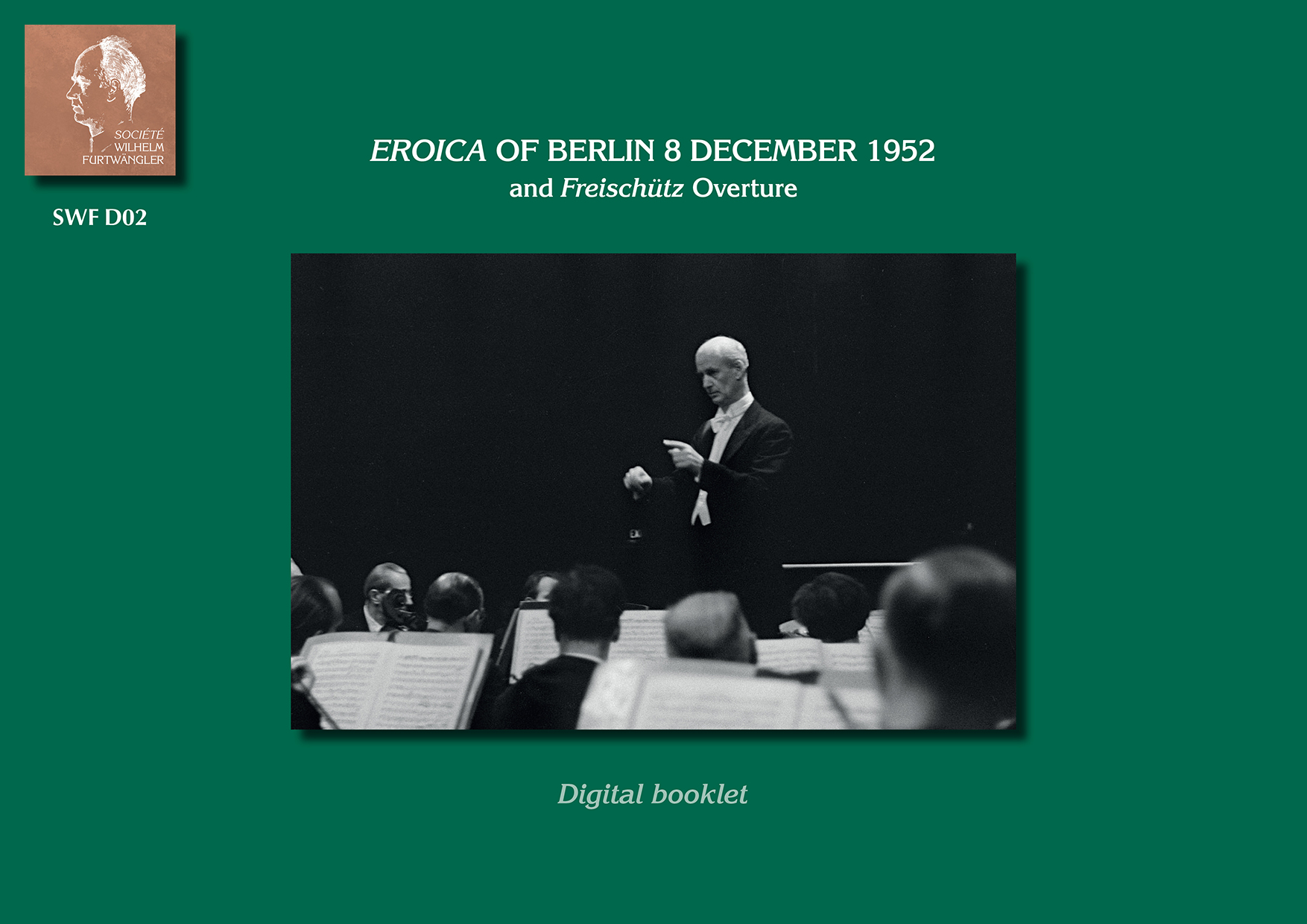
This new digital product — the second, after the Ninth of 1942 — bears the reference SWF D02, and will be available for downloading at the price of 8€ on 30 August next.
You can smile even as you learn quite a few little things. You will glean some little-known facts if you read this bilingual study, a virtual report of a recording conducted by Furtwängler. The title says it all… or almost!
It is not often we come across pictures of musicians of the Berlin Philharmonic Orchestra taken in close-up in the midst of work.
Here are a few, no doubt from 1931, and we have even been able to put a name to each face. Click to enlarge.
And, from the same source, here they all are under the baton of their conductor.
SEARCH REWARD
In its issue no. 25/26 of 26 June 1918, the magazine Signale für die musikalische Welt had a news report from Lübeck: “As guest conductor, Furtwängler — to whom the Lübeck public is greatly attached on account of his activity in the past — conducted The Flying Dutchman with rare force of conviction”.

What about this: an unreported opera performance! There is no date, even if it is clear it was during the spring of 1918, but there is no trace in the known records. Nothing in what has been published concerning his activity in Lübeck and nothing either in his correspondence with Lilli Dieckmann. The nearest we find is this reference in a letter he sent her on 2 May: “It was a pleasure seeing you again in Lübeck…”
So, if you have any info…
Along the same lines we have discovered an unreferenced concert in Landau on 29 June 1920, Furtwängler conducting the Symphony Orchestra of the Palatinate.
The Berlin concerts of 9 to 12 January 1944 — the facsimile programme for which is now on line, and of which we have the complete recording made on the 9th — represent Furtwängler’s final appearances in the hall of the Philharmonie, which was destroyed in an air raid three weeks later.
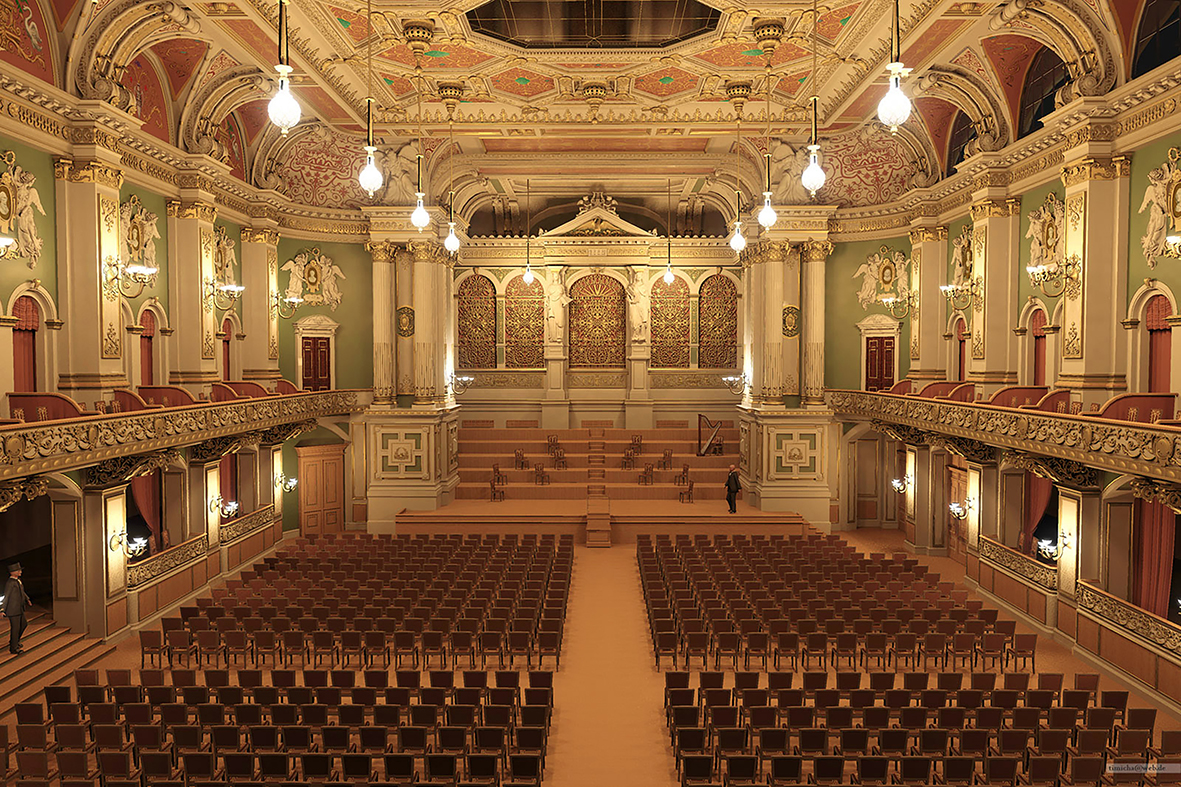
This is the moment to recall that this hall, which had been home to the Philharmonic Orchestra since its foundation, was originally an enormous roller-skating rink. The hall was extensively modified six years after the orchestra’s first performances and underwent further changes at the beginning of the twentieth century, resulting in the appearance that it retained until its destruction. The building also housed the Beethovensaal, which remained intact for a few more months, and the Oberlichtsaal, a huge space built on the site of the original garden.
Thereafter the Philharmonic would squat in one hall after another — the Beethovensaal, Staatsoper, Admiralspalast — until April 1945, when it finally found a temporary home in the Titania Palast. But that is another story.
And since we have always seen this hall only in black and white, this 3D reconstruction allows us to appreciate its unusual and decidedly 'mittel-europa' colours.
Solution to last week's riddle
The first correct answer has come from Thierry Salomon, a French member. A big bravo.
The solution: this photo was taken during a performance of Furtwängler’s Symphonic Concerto by Edwin Fischer and the Vienna Philharmonic, on 14 or 15 January 1939, at the Musikverein.
.

The clues, even if the photo is not top quality:
- the placement of the cellos (centre-left as seen by the conductor) corresponds to the standard pre-war layout,
- one can recognise the Leader, Franz Mairecker, at the first desk from the spring of 1938,
- it is possible, with an effort, to recognise Edwin Fischer at the piano.
After cross-referencing these clues with the concert listings for Vienna (very few piano concertos with the Philharmonic) only this Concerto by Furtwängler corresponds to the mystery photo.
We have placed this photo in an annexe of the concert record, and offer you, above, a series taken during the rehearsal. Edwin Fischer has his back towards the camera.

The new SWF website has now been operational for a year, a year we have untiringly and regularly filled with new elements.
To mark the occasion the SWF proposes a little competition in the form of a riddle based on this photo: who is at the piano? and what are they playing?
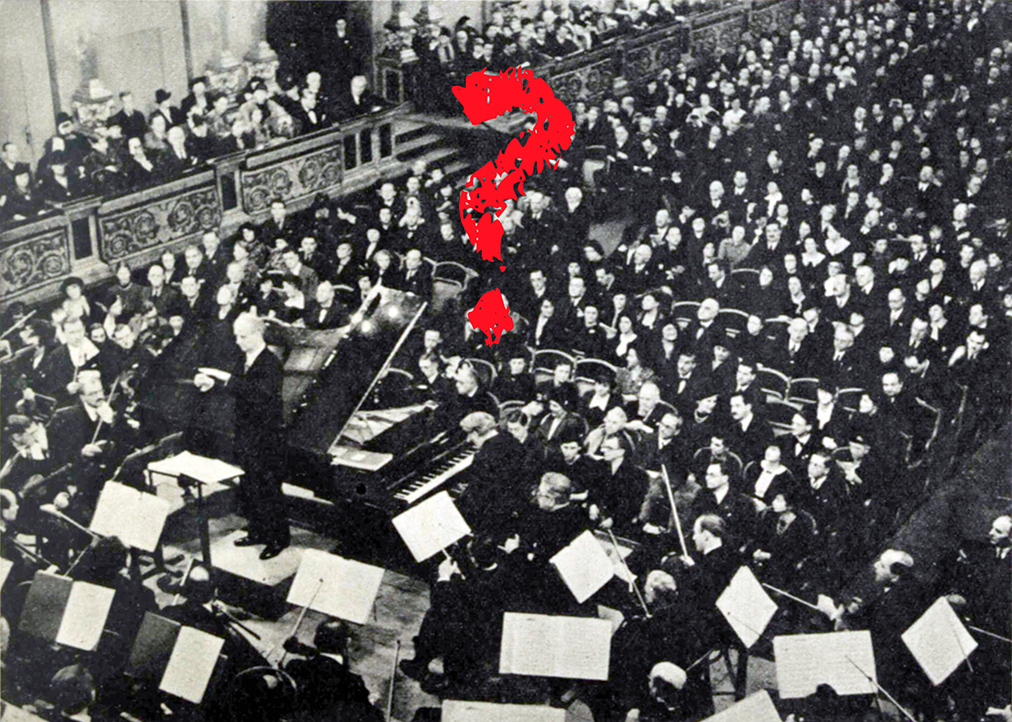
To get you going, let’s say we are in Vienna… but you probably know that already! The concerts list on this homepage (below) might help you.
The first person to solve the riddle will receive two albums, free of charge, to be chosen from among the following:
- SWF 961-2 Lucerne
- SWF 963 Bruckner n° 6
- SWF 901 Beethoven n° 6
- SWF 902 Brahms/Franck
- SWF 101 Beethoven-Brahms 1943
- WF-GFJ 081-4 Meistersinger
... or a free one year membership if you are not yet a SWF member.
Answers to site@furtwangler.fr before 6 June.

